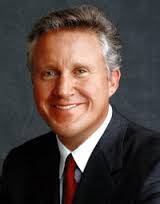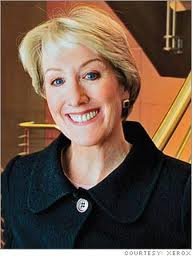
King Abdullah of Saudi Arabia has just inaugurated the world’s largest university for women, the Riyadh Women’s University. 40 000 women will be able to attend. This is an excellent move to support reforms already taking place within the country.
An impressive construction
As a construction project the Riyadh Women’s University is pretty impressive. Built over an area of 18 million square metres, at a cost of 8 billion euros it will have many features that would rank it as a small city rather than a simple university. It will host up to 40 000 students and 12 000 employees will work on the complex. The site will include not only the usual array of shops and services but also a museum, a theatre and an ultra-modern sports complex. The university will provide a nursery for young mothers and as well as a training hospital with 700 beds. There will even be a monorail to transport them around the 14 kilometres that separate the different buildings. And this massive project was completed in a mere 2 and a half years. (Education ministers in the Western world stop dreaming; that’s never going to happen in your country).
The principle role of university
This is a fantastic achievement. The problem comes when we begin defining the very purpose of such institutions. Essentially, universities  and higher education institutions have two main roles. One is to train people so that they make an active contribution to society and provide for themselves and their families through work. This is the instrumental part of education. The other is to open people’s minds to new idea and to challenge the exiting order. This is the integrative side to learning. Given the current position of women in Saudi Arabia, exactly which one of these objectives will the Riyadh Women’s University be trying to achieve?
and higher education institutions have two main roles. One is to train people so that they make an active contribution to society and provide for themselves and their families through work. This is the instrumental part of education. The other is to open people’s minds to new idea and to challenge the exiting order. This is the integrative side to learning. Given the current position of women in Saudi Arabia, exactly which one of these objectives will the Riyadh Women’s University be trying to achieve?
Integrative motivation and the opening of minds
Integrative learning and the opening of minds through exposure to new ideas and free and open debates has been one of the fundamental roles of learning since the birth of formal education itself. Granted the Saudi government is clearly committed to educating its citizens. It spends 30 million euros a year or 40% of its entire budget on education. And women already make up nearly 60% of higher education graduates. But from there on they are clearly second class citizens. All women are required to have a guardian regardless of their age. His consent must be sought for practically all major decision such as marriage, divorce, education, opening a bank account and surgery. Forbidden to drive a car (though curiously they may fly a plane!) and discouraged from using taxis or public transport, even minor travels around their home town become a hassle. Admittedly, a few places are reserved for women at the rear sections of trains and buses to allow them some limited movement. Hmm? “Back of the bus.” Does that sound familiar? Not surprisingly, The World Economic Forum 2009 Global Gender Gap Report ranked Saudi Arabia 131th out of 134 countries for gender parity. One wonders who the other 3 countries were.
Training to Work
Let’s consider the instrumental side of learning i.e. training people to find paid employment. Is the regime trying to encourage more women to work? It would not be difficult to get fewer. Laws requiring a guardian’s permission to work were finally repealed just 3 years ago, but currently less than 10% of Saudi women have active employment in companies (though it is said that many work from home). This is a paltry figure even compared to other surrounding Muslim nations such as the UAE, Kuwait or Malaysia where rates are way over 40%. However, it is hardly surprising. From a young age, girls are taught that their primary role is to look after their families and the household. Those few women that do wish to brave the job market then find that companies are then discouraged from employing them. Obstacles include provision of distinct entrances to their premises for men and women and, by law, physically and visually separate sections for the sexes at all meetings.
Minor Reforms

King Abdullah University of Science and Technology (KAUST):
Saudi Arabia’s first mixed sex university.
To be fair on King Abdullah he has tried to make some moderate reforms. In 2009 he took on the ultra-conservative factions of his own government by opening the King Abdullah University of Science and Technology, (KAUST). This became the country’s first mixed sex university. However, as in all other public places, women have to study in separate parts of the building from the men. They follow their classes through the use of close circuit television and live broadcasts. This is not exactly a practical way to engage in active learning.
Universities serving their purpose
Such gigantic constructions should therefore be praised only if they are coupled with social reform in Saudi Arabia. Clearly, King Abdullah is moving in this direction and should be commended for his efforts. If he succeeds then the Raman’s Women University will be able to accomplish its role to the full. It will allow its students to open their mind and make an active professional contribution to society if they so wish. If he does not succeed, then its students will gain professional skills that they will never be allowed to use and may even be given thoughts of equality that they should never be allowed to think.
See also:
Children of the (Cultural) revolution: Chinese Higher Education 35 years after Mao’s death
This week China will quietly commemorate the anniversary of the death of Mao Zedong. On the 9th September 1976, the founder of the Chinese Communist Party died at the age of 82. During that time, Chinese universities have followed the modernization movement within the country in their goal to become world-class institutions. Read more….
Beyond your borders: Overcoming cultural differences that so often cause conflict
According to Geert Hofstede “Culture is more often a source of conflict than of synergy. Cultural differences are a nuisance at best and often a disaster.” Patrick Mazzariol, Vice President International Sales at Synchrony, Inc., USA, explains that an international learning strategy, language skills and embracing new cultures are the keys to overcoming this problem. Read more…
Christine Lagarde becomes head of the IMF: Will this inspire future female business leaders?
Christine Lagarde has landed the job she so much wanted (and the Europeans wanted her to have) as head of the IMF. If she were a man, then everyone would be discussing whether her professional background will have adequately prepared her for the world’s second most important position. But she isn’t. So, gender has become an issue. Read more…
Relax & Read: T.L. McCown
Shannon A Thompson: “T.L. McCown, author and instructor at Columbia College, is STILL the only author to write about the Saudi Royal Family from first-hand experience. Her two novels–Shifting Sands: Life in Arabia with a Saudi Princess & Creating Shamsiyah: Staging the Saudi Feminist Movement–are inspiring, challenging, and a vivid collection of culture in Saudi Arabia.
Mark Thomas
Saudi Arabia Riyadh Women’s University Mixed Sex Universities Grenoble EM GEM ESC Grenoble International Affairs in Higher Education Business School in France Universities in Middle East























Having worked in Afghanistan in the health sector for a year and a half, university education is not only useful for finding a job.
Women with a better level of education and a good level of knowledge, understand hygiene promotion better, nutrition for the children, can have a better access to family planning options, facilitated access to primary health care and can also participate on advocacy and the development of the rights of women. When the trained midwives come back to their villages, every woman benefit from their knowledge. It is also a way to participate to the community development. When afghan women fight for the right of women, it is also because they are educated and because they know how different it could be. Being part of a decision process at community level or national level is possible when you are educated.
This is one of my findings here.
I think you also need to talk to women leaving in these countries to understand how much education is important for them. It’s not just a matter of finding a job.
Thank you for your message and your insights based on your experience. The points you make are very interesting. To some extent I was trying to argue this when talking about integrative motivation. You make the case much more clearly then I do, though!
From BBC News
Saudi Arabia women drive cars in protest at ban
17 June 2011 Last updated at 18:18 GMT
Women in Saudi Arabia have been openly driving cars in defiance of an official ban on female drivers in the ultra-conservative kingdom.
The direct action has been organised on social network sites, where women have been posting images and videos of themselves behind the wheel.
http://www.bbc.co.uk/news/world-middle-east-13814514
From ABC NEWS
Clinton Backs ‘Brave’ Saudi Women Driver Protest
By MATTHEW LEE Associated Press
WASHINGTON June 21, 2011 (AP)
Secretary of State Hillary Rodham Clinton on Tuesday lent her support to “brave” women in Saudi Arabia who are protesting the Islamic kingdom’s ban on female drivers, making her first public comments on an issue that has become an irritant in complex ties between the U.S. and Saudi governments.
http://abcnews.go.com/US/wireStory?id=13893814
Besides Saudi Arabia I have visited many other countries. I am not a Saudi citizen but I love this country to any extent as compared to any other country on this earth. You wana rob this country as well of its wealth you’ll never be allowed to do that. Love Live the Great Kingdom of Saudi Arabia
Dear Ajnabi,
Thank you for reading the article and taking the time to make a comment. My intention in writing it was not to rob Saudi Arabia of anything (or any other country for that matter). Rather, I wanted to make a comment about higher education and the rights of women there. Since you obviously have a lot of experience of the country, I would be very intereted to know your opinion.
Thanks again for taking the time to reply.
Mark
it is a good step taken by Sir Abdulah.
Education should b given to the womens.
Thye are the future makers,
It is awesome . . .
victory over the world can only be possible i,e is through education saudi arabia is now on the right path may allaha bring sucesses to all the women
and have a greate life
Thank you for your comment, Khan. WE seem to agree that the opening of the Riyadh Women’s University is a step in the right direction, though more still needs to be done.
Reblogged this on William Penn University Study Abroad and commented:
After the announcement of the construction of Riyadh Women’s University, Saudi Arabia began to receive a different view in the world of education. Known as a country that focuses on strict religious beliefs, many people questioned whether families would allow their daughters to attend university – and how many would apply. The school, finished within two and a half years, can now be home for up to 40,000 women. It will be very interesting to see what the future holds for these young scholars as they move forward in life – culturally and academically.
Karolyn, Thank you for your interesting ramrks and for reblogging the post. Your study abraod site at William Penn is very well put together. You may have seen in the Olympics in London that two women from Saudi Arabie competed; Sarah Attar and Wodjan Ali Seraj Abdulrahim Shahrkhani. This is another good move forward. The future will be very interesting indeed. Thanks again for reading and commenting.
Pingback: The Shanghai Jiaotong Academic Ranking of World Universities 2012…and the winners are…. | GlobalEd
This minor reform step is an excellent start. In addition to the benefits you mentioned above, women would find that they are surrounded in a safe environment with a large and extremely supportive community of like-minded individuals. This unique arena just may provide the basis for the initiation of a cultural shift.
Thank you for your comments and I agree. A safe environment is crucial for learning and this will help a great deal. There is still a long way to go, though.
Pingback: Christine Lagarde becomes head of the IMF: Will this inspire future female business leaders? | GlobalEd
This is real way of gifting something to the nation in general and to the muslim ummah in particular. May i know what is there for the other muslim
women from other countries ?
Mukhtar A.K.
India
Thank you for reading the article and for your comment. I am not quite sure that I truly understand the question.
I suppose that seeing new universities like this one and seeing how many women study naturally gives people from other countries the idea that they can do the same. Obviously this is more open in some societies than other but it should always be encouraged.
Thanks for the quick response sir, actually my question is whether there is any opertunity for the muslim girls from other countries like India,Pakistan,etc. who would like to graduate from this iconic university .
I am not of the entry criteria sure but I will try to find the answer for you and reply as soon as possible.
Best wishes,
Mark
Thank you sir ,that what i am looking for .
Best wishes
Mukhtar A.K.
I really appreciate this step. Education is necessary for a woman not because of job but for a healthy nation. I wish i could be a part of this effort right after completing my MS
Dear Lubna, Thank you for you comments on the article and I totally agree with you that education is important for the health of a nation. I wish you the best of luck with your MS.
Mark
Thank you sir!